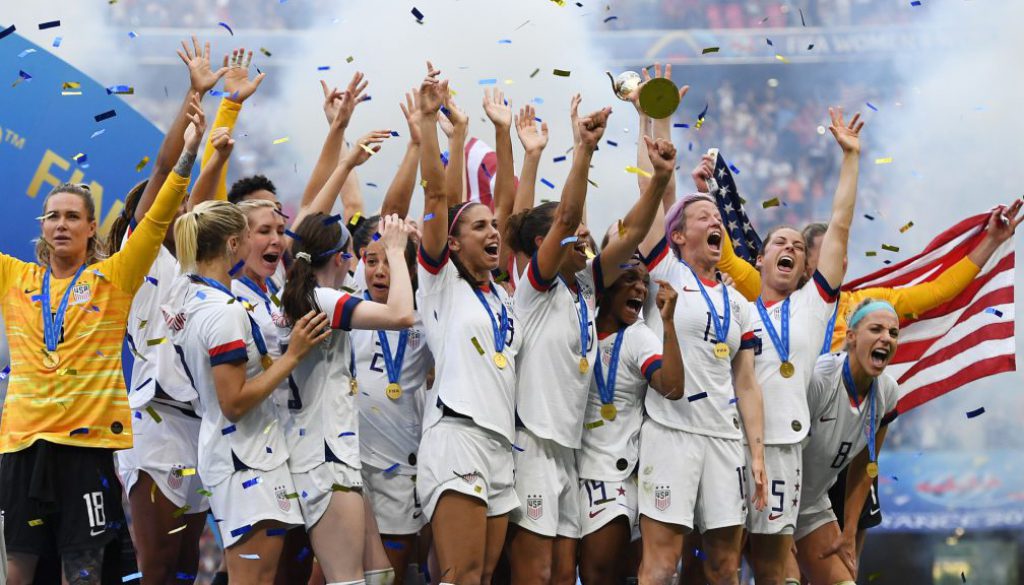The Power of Great Teamwork

It’s summer sports season and from the recent victory of the US Women’s World Cup soccer team, we can learn a lot from the global professional athletes as well as the local sports enthusiasts playing in community recreational leagues.
Teamwork lessons that serve athletes well on the court are also applicable to your professional life. Athletes benefit from intensive coaching to get them from “good to great” and to maintain the elite status when they distinguish themselves in their sport.
A competitive athlete and a solid career professional can never rest on their laurels but must constantly strive to maintain top quality and set new goals.
My friend, Robyn Odegaard founded her business, Champion Performance Development with a commitment to teaching individuals how to better communicate and resolve conflict on teams. She was a collegiate athlete and shares the following strategies for great teamwork that are relevant in the office as well as the sports arena.
- Set expectations– You cannot expect someone to meet your needs or the needs of the team if you never tell them what those needs are.
- Hold each other accountable– If someone isn’t pulling their weight, ask them what you can do to help them step-up to the responsibilities.
- Support each other (Check-in) – Know what each of your teammates looks like when he/she is stressed and how she/he likes to be supported. If you are not getting what you need from your teammates – ASK!
- Care enough to give the tough feedback. Trust each other enough to apply it.
- You cannot observe how someone is feeling. Only the external symptoms of feelings can be observed. Your interpretations of those symptoms might be wrong.
- It is impossible to observe why– You can see what someone does and how they do it, but never why. To know why, they have to tell you. Never just make up the why.
- Play brave, not afraid– trying and failing is better than doing nothing.
- Never evaluate during competition– Adjust and move on. Stay in the moment. Perform when you are performing and save evaluation for after the game when you can do something about it.
- Celebrate and remember successes. Learn from and move past disappointments.






